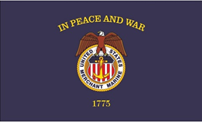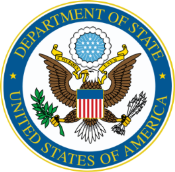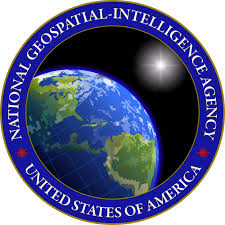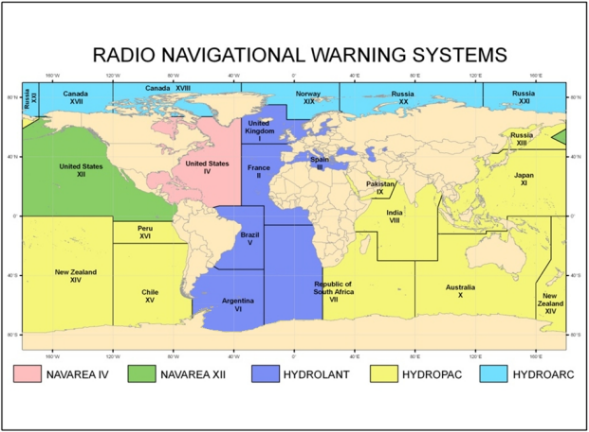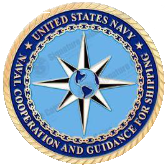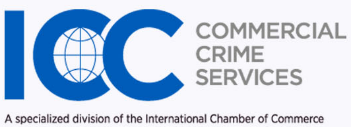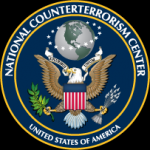Office of Maritime Security

The Office of Maritime Security (MAR-420) supports the U.S. maritime transportation system, the U.S. Merchant Marine, and other elements of the U.S. maritime industry. We facilitate the development and implementation of effective maritime security policies, procedures, practices, statutes, and training to protect U.S. citizens and maritime interests from maritime security threats such as piracy, terrorism, criminal activity, and cyber-attack. We also provide information for U.S.-flag vessels, serve as the Department of Transportation’s (DOT) principal coordinator for maritime domain awareness matters, function as the DOT lead within the inter-agency Maritime Operational Threat Response process, serve as a key facilitator between maritime industry and government agencies, and provide expert maritime security advice and assistance on issues involving the global maritime transportation system. #
Table of Contents.
- Maritime Security Communications with Industry (MSCI)
- Piracy and Armed Robbery Against Ships
- Maritime Domain Awareness (MDA)
- Other Federal Maritime Security Resources
- Regional Threat Information and POCs
- Maritime Administration Certification of Cruise Vessel Security and Safety Act (CVSSA) Training Providers
- Port Security Grant Program
- Maritime Cyber Security
- Office of Maritime Security Contacts
Maritime Security Communications with Industry (MSCI)
MARAD’s Office of Maritime Security works closely with international and interagency partners to facilitate maritime security information sharing with maritime industry stakeholders.
U.S. Maritime Alerts and U.S. Maritime Advisories have been established through a U.S. government - U.S. maritime industry partnership to efficiently communicate information on threats in the maritime domain to U.S. maritime industry stakeholders and U.S. mariners. The Maritime Security Communications with Industry (MSCI) system is comprised of representatives from the Departments of State, Defense, Transportation, Justice, Homeland Security, and the Intelligence Community, who collaboratively formulate these Alerts and Advisories. Additional information on this system is available on the MSCI Portal.
U.S. Maritime Alerts were developed to rapidly provide only basic information (time, location and confirmation) on a maritime threat event of interest to the U.S. maritime industry. A U.S. Maritime Alert self-cancels seven days after issuance. A U.S. Maritime Advisory may, but won't always, follow or precede the issuance of a U.S. Maritime Alert and is intended to provide more detailed information, points of contact, and "whole-of-government" recommendations in response to a maritime threat. A U.S. Maritime Advisory will normally be in effect for six months.
U.S. Maritime Advisories have replaced the legacy State Department "Special Warning" and Department of Transportation "MARAD Advisory" systems (which no longer exist), as well as international maritime security related information previously published under the U.S. Coast Guard's Marine Safety Information Bulletin system. The MSCI system now serves as the single, coordinated U.S. government system for issuing maritime security threat information to maritime industry stakeholders. MSCI Alerts and Advisories are transmitted to ships at sea and emailed to subscribed stakeholders by the National Geospatial-Intelligence Agency. Vessel Masters, Company Security Officers, ship operators and other U.S. maritime interests are the intended recipients of these messages. Information on subscribing to these products is available on the MSCI Portal.
Piracy and Armed Robbery Against Ships
The International Maritime Organization (IMO), through the 1982 United Nations Convention on the Law of the Sea (UNCLOS), Part XI, Article 101, states that piracy consists of the following acts:
(a) any illegal acts of violence or detention, or any act of depredation, committed for private ends by the crew or the passengers of a private ship or a private aircraft, and directed:
(i) on the high seas, against another ship or aircraft, or against persons or property on board such ship or aircraft;
(ii) against a ship, aircraft, persons or property in a place outside the jurisdiction of any State;
(b) any act of voluntary participation in the operation of a ship or of an aircraft with knowledge of facts making it a pirate ship or aircraft;
(c) any act of inciting or of intentionally facilitating an act described in subparagraph (a) or (b)
Resolution A.1025(26)(Annex, paragraph 2.2) on IMO’s Code of Practice for the Investigation of the Crimes of Piracy and Armed Robbery Against Ships, states that armed robbery against ships consists of any of the following acts:
- any illegal act of violence or detention or any act of depredation, or threat thereof, other than an act of piracy, committed for private ends and directed against a ship or against persons or property on board such a ship, within a State’s internal waters, archipelagic waters and territorial sea;
- any act of inciting or of intentionally facilitating an act described above
Since the problem of piracy in the Horn of Africa (HOA) region began to escalate in the late summer of 2008, the Maritime Administration (MARAD) has been involved in working with other Federal agencies (particularly the Department of Homeland Security’s U.S. Coast Guard and the Department of State’s Economic Bureau/Office of Transportation Policy) to mitigate the risks and develop strategies to protect commercial shipping. These efforts have included interaction with U.S. maritime industry stakeholders, labor organizations, and international shipping associations. MARAD staff members continue to serve on the U.S. Delegation to the International Maritime Organization’s Maritime Safety Committee and also support other U.S. government counter piracy efforts.
A number of important industry-developed counter-piracy resources, including the Best Management Practices "BMP Maritime Security", as well as International Maritime Organization and other counter piracy resources; are available at:
https://www.maritimeglobalsecurity.org/risksissues/piracy/
Maritime Domain Awareness (MDA)
The Office of Maritime Security serves as the support staff for the Department of Transportation’s (DOT) Maritime Domain Awareness (MDA) Executive Agent (EA). MDA is the effective understanding of anything associated with the maritime domain (e.g., navigable waterway, maritime-related activities, infrastructure, people, cargo, and vessels) that could impact the security, safety, economy, or environment of the United States. As such, the Office of Maritime Security supports and promotes creative initiatives to enhance MDA to facilitate the safe and secure flow of commerce in accordance with the National Maritime Domain Awareness Plan of the National Strategy for Maritime Security.
From a transportation perspective, the Office of Maritime Security actively supports seeking ways and means to ensure a resilient, integrated U.S. maritime transportation system. We work collaboratively with industry as well as local, State, tribal, territorial, and other federal agencies to develop and encourage best practices and innovative methods to protect our ports, vessels, and mariners so they can reliably and resiliently meet the economic needs of our Nation. We also strive to serve as a catalyst among maritime interests to develop an environment in which partners can embrace and achieve a common objective of obtaining and sharing appropriate information to enhance commerce in support of a secure and reliable maritime transportation system.
Office of Maritime Security MDA coordination activities include participation in the National Maritime Intelligence Integration Office (NMIO) Interagency Advisory Group (NIAG), the Canada-U.S. (CANUS) MDA Roundtable, and several other interagency and international MDA bodies involved in enhancing understanding and cooperation on MDA issues.
(Click here for additional MDA information and resources)
For more information on MDA, please email MaradSecurity@dot.gov.
Maritime Administration Certification of Cruise Vessel Security and Safety Act (CVSSA) Training Providers
Under the Cruise Vessel Security and Safety Act (CVSSA) of 2010 (Public Law 111-207), the Federal Bureau of Investigation (FBI), the U.S. Coast Guard (USCG), and the Maritime Administration (MARAD) cooperatively established model training standards covering crime prevention, detection, evidence preservation, and reporting of criminal activities in the international maritime environment. The Act allows MARAD to certify security and safety training providers who provide training consistent with the model standards. Under this MARAD certification program, organizations wishing to have their cruise vessel security and safety training programs certified by MARAD as consistent with the model standards may voluntarily submit their programs to MARAD for review. This voluntary certification program will assist organizations in ensuring the safety and security of cruise ship passengers traveling to and from American ports.
Information on becoming a MARAD Certified CVSSA Training Provider is available here. You may also contact MARAD’s CVSSA Program Manager at CVSSA-MARAD@dot.gov for additional CVSSA Training Provider Certification Program information.
Port Security Grant Program
The Maritime Administration (MARAD) supports the Department of Homeland Security (DHS) in the allocation of federal grants to State, local, and private sector maritime industry partners as a means to enhance port security throughout the United States. This program involves a Federal and private shared-cost arrangement administered by the Federal Emergency Management Agency (FEMA). For additional information on the Port Security Grant Program, click here.
Maritime Cyber Security
Maritime Cyber Security represents another area of focus for the Maritime Administration (MARAD). The Office of Maritime Security works with the Department of Homeland Security (DHS) and others to share cyber security resources and best practices with the U.S. maritime industry and shares maritime industry’s cyber security concerns with appropriate government agencies.
These documents provide best practices for cyber security, as a foundation element of overall safety and security within and across the marine and offshore communities. The best practices are meant to provide insights for operation , maintenance and support of cyber-enabled systems, to better assure safety and security in those systems.
Additional information on maritime cyber security is available at:
Coast Guard Maritime Industry Cybersecurity Resource Center
Maritime Security Resources
- Transportation Worker Identification Credential (TWIC) Information
- Office for Bombing Prevention – Counter-IED Resources Guide
Other Federal Maritime Security Resources
U.S. Department of State (DOS) – Transportation Affairs (EB/TRA)
Supports the U.S. global transportation industry and the travelers and shippers who rely on it. Secure international mobility is vital to the prosperity of Americans and citizens of all nations. Part of the Bureau of Economic and Business Affairs, EB/TRA is comprised of two offices: the Office of Aviation Negotiations (AN) and the Office of Transportation Policy (OTP). EB/TRA supports a world-wide transportation system that is open, efficient, secure and safe for the rapid and economical movement of people and goods. Additional information on EB/TRA may be found at: https://www.state.gov/bureaus-offices/under-secretary-for-economic-growth-energy-and-the-environment/bureau-of-economic-and-business-affairs/division-for-transportation-affairs/
All U.S. citizens are entitled to representation by the U.S. Department of State when residing, traveling, or employed abroad. Please consult the U.S. Department of State Embassy website for country specific information: https://www.usembassy.gov/
Additionally, all U.S. citizens of the professional maritime community (including military members and federal/state maritime academy cadets and midshipman) are strongly encouraged to register with the U.S. Department of State’s Smart Traveler Enrollment Program (S.T.E.P.) when traveling for overseas crew changes or port visits: https://step.state.gov/step/
Lastly, prior to traveling abroad, please check the Bureau of Consular Affairs website at: https://travel.state.gov/content/passports/en/alertswarnings.html to review the latest in-force Travel Alerts and Warnings.
U.S. Department of Homeland Security (DHS) – US Coast Guard Office of Commercial Vessel Compliance
(CG-CVC)
The Office of Commercial Vessel Compliance (CG-CVC) develops and maintains policy and standards for the prevention activities of the Coast Guard to achieve Marine Safety, Security, and Stewardship mission success. In that regard, all suspicious activities and events must be reported to the U.S. Coast Guard National Response Center in accordance with 33 C.F.R. § 101.305 at: Tel: 800-424-8802/NRC Watch Email:NRC@uscg.mil. CG-CVC can be found at: https://www.dco.uscg.mil/Our-Organization/Assistant-Commandant-for-Prevention-Policy-CG-5P/Inspections-Compliance-CG-5PC-/Commercial-Vessel-Compliance/
U.S. Department of Defense (DOD) – National Geospatial-Intelligence Agency (NGA)
NGA’s Maritime Safety Office collects, evaluates and compiles worldwide marine navigation products and databases. The office transmits U.S. Maritime Alerts and Advisories and coordinates the worldwide Navigational Warning Service’s NAVAREA IV and NAVAREA XII safety messages, an essential part of the Global Maritime Distress and Safety System. The Maritime Safety Information (MSI) Portal can be found at: http://msi.nga.mil/NGAPortal/MSI.portal
Regional Threat Information and POCs
East Africa/Red Sea, Bab Al Mandab, Gulf of Aden, Arabian Sea, and Indian Ocean
Official U.S. government information on events in the region can be found at the Department of State’s Bureau of Near Eastern Affairs: https://www.state.gov/bureaus-offices/under-secretary-for-political-affairs/bureau-of-near-eastern-affairs/.
PIRACY: Piracy off the coast of Somalia has seen a resurgence and continues to be a threat to the global Marine Transportation System (MTS). The U.S. Maritime Advisory System provides guidance on East Africa/Red Sea/Gulf of Aden/Indian Ocean transits. Vessel operators are advised to follow recommended Best Management Practices for Maritime Security and register with the United Kingdom Maritime Trade Operations (UKMTO) and Maritime Security Center Horn of Africa (MSCHOA)/European Union Naval Force (EUNAVFOR) when operating in this area.
All suspicious activity reports in this region should be immediately passed to Naval Forces Central Command (NAVCENT) Naval Cooperation and Guidance for Shipping (NCAGS) via its 24/7/365 Duty Watch Officer at +973-1785-0033 (Primary/Watch Desk), +973-3940-4523 (Alternate), or m-ba-navcent-ncags@us.navy.mil.
United Kingdom Maritime Trade Operations
Immediate or urgent communications with UKMTO can be accomplished via phone at: +44 (0) 2392 222060, to their Dubai office at +971 50 189 8389, or via email at: watchkeepers@ukmto.org. Additional information may also be found on the United Kingdom’s Maritime Trade Operations (UKMTO) website at: https://www.ukmto.org/
EU/NAVFOR information can be found at: https://eunavfor.eu/. If you would like to contact the Maritime Security Centre Indian Ocean (MSCIO) directly, please use one of the following contact methods: Tel: +34 956470534 and Email: postmaster@mscio.eu.
The International Maritime Bureau at website: https://icc-ccs.org/imb-piracy-reporting-centre-2/, provides up-to-date piracy reporting information. Tel: + 60 3 2078 5763 Fax: + 60 3 2078 5769 Email: imbkl@icc-ccs.org/ piracy@icc-ccs.org
24 Hours Anti-piracy HELPLINE Tel: + 60 3 2031 0014
The North Atlantic Treaty Organization (NATO) Shipping Center is also an additional resource for relevant maritime information: http://www.shipping.nato.int/nsc.aspx. Tel: +44 (0) 1923-956574 Fax: +44 (0) 1923-956575
CIVIL WAR/TERRORISM: Threats due to civil war and violent extremism persist in the Arabian Peninsula, specifically the Red Sea and Gulf of Aden areas bordering Yemen. The U.S. Maritime Advisories System provides guidance for transits of this area. Information on terrorist organizations is available from the National Counter-Terrorism Center – https://www.dni.gov/index.php/nctc-home
Southeast Asia/Strait of Malacca, Java Sea, South China Sea, Sulu Sea, and Celebes Sea
Official U.S. government information on events in the region can be found at the Department of State’s Bureau of East Asian and Pacific Affairs: https://www.state.gov/bureaus-offices/under-secretary-for-political-affairs/bureau-of-east-asian-and-pacific-affairs/
PIRACY: Piracy and armed robbery incidents continue to occur in the Strait of Malacca and Southeast Asia. The most recent USG maritime security guidance for Southeast Asia can be found in the U.S. Maritime Advisory System.
Additional piracy and armed robbery information for Southeast Asia can be found on the Regional Cooperation Agreement on Combating Piracy and Armed Robbery against Ships in Asia (ReCAAP) Information Sharing Center (ISC) website at: http://www.recaap.org/ The International Maritime Bureau at website: https://icc-ccs.org/icc/imb, provides up-to-date piracy reporting information.
TERRORISM: Threats of violent extremism persist in the Southeast Asia, specifically the Sulu and Celebes Seas. The U.S. Maritime Advisory System provides additional guidance and precautions during transits of this area.
West Africa/Gulf of Guinea, Atlantic and Mediterranean Coasts
Official U.S. government information on events in the region can be found at the Department of State’s Bureau of African Affairs: http://www.state.gov/p/af/index.htm
PIRACY: Piracy and armed robbery against ships continues in the Gulf of Guinea. The most recent guidance for West Africa can be found within the U.S. Maritime Advisory System. The joint Maritime Domain Awareness for Trade-Gulf of Guinea (MDAT-GoG), which replaced the Maritime Trade Information Sharing Center-Gulf of Guinea (MITSC-GoG), can be contacted via email at: watchkeepers@mdat-gog.org, or in emergency by phone at +33 (0) 2 98 22 88 88. The International Maritime Bureau, at website: https://icc-ccs.org/icc/imb, also provides up-to-date piracy reporting information.
Information on Maritime Security Planning Charts is available at https://www.admiralty.co.uk/maritime-safety-information/security-related-information-to-mariners
TERRORISM: Threats due to violent extremism persist in West Africa extending from the Atlantic Coast, through the interior and reaching the Mediterranean Coast. Additional information is available from the National Counter-Terrorism Center – https://www.dni.gov/index.php/nctc-home
Additional global Piracy/Terrorism/Country resources and related information may be found at the following locations:
The Office of Naval Intelligence’s (ONI) “Worldwide Threat to Shipping” and “Piracy Analysis and Warnings” may be found on the ONI website at: https://www.oni.navy.mil/ONI-Reports/Shipping-Threat-Reports/Worldwide-Threat-to-Shipping/
Office of the Director of National Intelligence National Counter-Terrorism Center: https://www.dni.gov/index.php/nctc-home
CIA’s World Factbook website: https://www.cia.gov/library/publications/the-world-factbook/
Combating Terrorism Center at West Point: https://ctc.westpoint.edu/
For more information on MSCI matters, please email MaradSecurity@dot.gov.
Office of Maritime Security Contacts
Cameron T. Naron
Director, Office of Maritime Security
(202) 604-2331
MaradSecurity@dot.gov
Kimberly Brown
Office of Maritime Security
(202) 579-7212
MaradSecurity@dot.gov
Christopher Owsianiecki
Office of Maritime Security
(202) 380-7958
MaradSecurity@dot.gov

